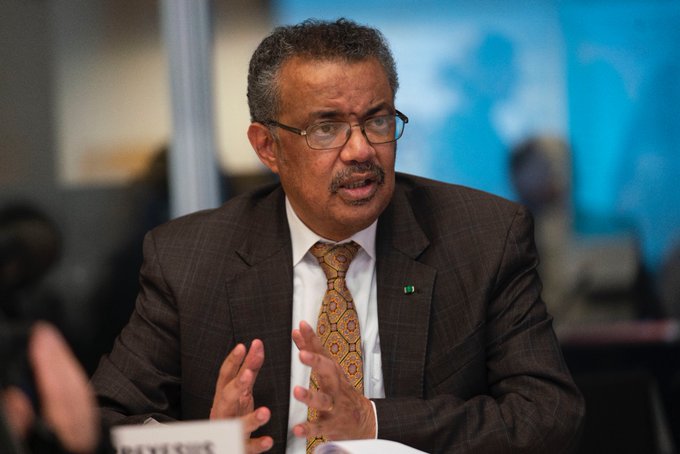The World Health Organisation has declared the coronavirus outbreak a “public health emergency of international concern.”
The decision comes as the death toll from the virus reaches 170 in China - with health authorities saying there have been 7,736 confirmed cases in the country.
There have been 98 confirmed cases of the virus in 18 other countries – including France, Germany and the US.
"Unprecedented"
WHO Director-General Dr Tedros Adhanom Ghebreyesus said the outbreak has been unprecedented; however, he noted that it has been met with “an unprecedented response.”
He said the Chinese Government should be congratulated for the “extraordinary measure” it has taken to contain the outbreak, “despite the severe social & economic impact those measures are having on the Chinese people.”
“We would have seen many more cases outside China by now, and probably deaths, if it were not for the government’s efforts and the progress they have made to protect their own people and the people of the world,” he said.
LIVE: Press conference on the Emergency Committee meeting on #2019nCoV https://t.co/hTQam7RWc9
— World Health Organization (WHO) (@WHO) January 30, 2020
The epicentre of the outbreak is the city of Wuhan in China’s Hebei province and Dr Ghebreyesus said the vast majority of international cases involve people who have travelled to the region or have had contact with someone who has.
He warned that the international community must act to ensure the virus does not spread to any country with a weak health system – and prepare for the possibility that it will.
🚨BREAKING🚨
"For all of these reasons, I am declaring a public health emergency of international concern over the global outbreak of #2019nCoV."-@DrTedros
— World Health Organization (WHO) (@WHO) January 30, 2020
He said countries around the world must share their data, knowledge & experience in order to tackle the outbreak.
“The only way we will defeat this outbreak is for all countries to work together in a spirit of solidarity and cooperation,” he said.
“We are all in this together and we can only stop it together.”
 WHO Director-General Dr Tedros Adhanom Ghebreyesus
WHO Director-General Dr Tedros Adhanom GhebreyesusIreland
This afternoon, the HSE said there have been no confirmed cases of the virus in Ireland so far – and insisted the country "very well prepared" to deal with any that may arise.
The Government has said it is working with EU partners on an evacuation plan for a number of Irish people who have indicated they want to leave China.
They could be flown out of the region as early as tomorrow.
Risk
Dr Cillian de Gascun from UCD's National Virus Reference Laboratory said the risk to Ireland is low - but thinks it's likely there will be a case.
“There will be more cases in Europe; I think that accepted – and we are sort of a global community now, so we would expect it is more likely than not that there will be a case here eventually,” he said.
Global Health Emergency
There have been five global health emergencies declared since 2009 – the 2009 swine flu pandemic, the 2014 polio declaration, the 2014 Western Africa Ebola outbreak, the 2015-16 Zika virus epidemic and the ongoing Kivu Ebola epidemic.
They are defined as formal declarations of “extraordinary” events that pose a definite public health risk through the international spread of disease.
They are generally “serious, sudden, unusual or unexpected” situations that call for an international response.
The WHO stopped short of declaring the current outbreak an emergency on two previous occasions and this evening’s decision is likely to disappoint China, which has expressed confidence in its ability to contain the virus.
The declaration could lead to trade and travel restrictions and trigger containment and information-sharing guidelines.
More follows ...









